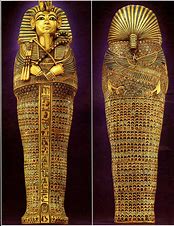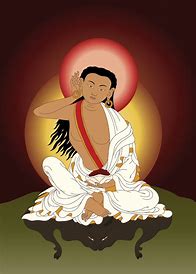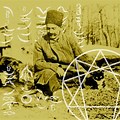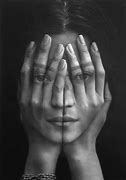Fragrance And Transition -The Long Tradition





Fragrance And Transition - The Long Tradition
In the ancient world, fragrance was an essential element in funerary rites. In genesis 49:33, jacob 'yielded up the ghost' and in 50:2, '...Joseph commanded his servants the physicians to embalm his father'. in 2 Chronicles 16:13-14, King Asa 'slept with his fathers', and was laid 'in the bed which was filled with sweet odours and diverse kinds of spices prepared by the perfumer's art'. Some versions of the bible say 'apothecaries' art'. An account of the death of the Persian king Yezdijird, in Ad 652, says he was embalmed with spices and perfumes; while the ancient Egyptians, as we know, used a great deal of fragrant material in mummification.
Fragrance has deep symbolic meaning to our ancestors who considered it a gift from the gods. It was, indeed, seen as both an expression of the divine, and as something that conferred divinity or immortality. The fragrant sap of trees - the resins of many ancient incenses - was seen as the sweat of tears of the gods; while the unaccountable loveliness of scents from flowers and herbs were seen as tools of divine inspiration.
The ancient Taoists, with their eyes ever on transformation, noted that a solid incense stick becomes, with fire, a fragrance which disappears in the air, while the ancient Roman writer Lucretius was struck by the idea that the soul is part of the body, as fragrance is part of a piece of frankincense resin. He wrote of death, 'the breath of life is driven without...scattering abroad like smoke.'
So important to the ancient Greeks was the custom of anointing the limbs of the departed with perfumed oil that they felt obliged to do this also to their greatest enemies if there was nobody else around to do it. After a cremation, at which incenses would be thrown on the fire, the bones and ashes were washed with wine, mixed with precious ointments, and placed in a funeral urn.
At one point in Homer's Odyssey, the practice is described: 'But with the flames your body has consumed, With oils and odours were your bones perfumed...' According to Eugene Rimmel, 'Perfumes were thought such an essential part of funeral ceremonies that scent-bottles were painted on the coffins of the poorer class of people as a sort of empty, consolation for the absence of the genuine article.' Fragrances were daubed on tombs, and scented flowers strewn around.
All this was too much for the writer Anacreon, who thought the precious fragrances should be enjoyed in life.
- Why do we shed the rose's bloom
- Upon the cold insensate tomb?
- Can flowery breeze or odour's breath
- Affect the slumbering chill of death?
- No, no; I ask no balm to steep
- With fragrant tears my bed of sleep;
- But now while every pulse is glowing,
- Now let me breathe the balm flowing;
- Now let the rose, with blush of fire,
- Upon my brow its scent expire....ODE 32
The most extravagant user of aromatics in ancient Rome - in death as in life - was the Emperor nero. At his wife, Poppaes's funeral, it's said that more incense was consumed than could be produced in 'Arabia' in a year. The Romans put ashes and bones in urns with perfumes, like the Greeks, and the more perfume that was used, the more wealthy the departed were or the more loved they were said to be.
For thousands of years in India, the funeral pile has contained scented woods, such as sandalwood, spices, fragrant gums and resins. The main centre for these fragrant materials is the town of Gazipur, conveniently located for their biggest market, the Hindu spiritual centre of India, Benares, just a little down river on the Ganges.
Muslins in Pakistan associate fragrance very closely with Heaven and say 500 angels gather near a person who has died and, just before the body is sprinkled with scents by the attendants, the angels sprinkle perfume brought from heaven. When the soul leaves the body, it i smeared with the fragrance of paradise and transported to Heaven.
In Japan, the youngest child sets fire to a pile of fragrant wood, and fragrant materials are also thrown upon it; while in China, at least until a hundred years ago, the body was perfumed, much incense was burnt, and those in the funeral procession carried burning fragrant material.
The reasons for using fragrance when making the transition are many, including the idea that the rising smoke literally carries the spirit of a person to higher realms. Because sweet smelling fragrance was so strongly associated with the heavenly realms, a person was expected to be aromatically acceptable when they arrived there. It was through aroma that the dead and the eternal met.
Muslims of the Indian subcontinent have traditionally burnt incense, which might include benzoin, sandalwood or patchouli, in an oodsoz, or censer, and this is lit at the moment of death, and placed by the feet of the body. In the United Arab Emirates, perfuming the body is done partly so the deceased should be sweet smelling when meeting God, but also because fragrance is said to attract angels and banish evil spirits. This idea has been, and continues to be, very widespread, right across the world.
Not everyone can bear the idea of dying. The Chinese in particular have a long tradition of seeking 'the herb of immortality' or 'the fungus of immortality', and many great tales have been written around characters who made the heroic attempt to locate them. Describing one such 'Gold medicine', in Ad 400, is Ko Hung (Pao Pu Tse):
The medicine should be prepared on a famous mountain.... The compounder... should perfect the purification and ointment of the body with the five perfumes... when the medicine is made, not only will the successful manipulator be immortal, but all the rest of his family will become immortal as well.
Reference: The Fragrant Heavens; The Spiritual Dimension of Fragrance and Aromatherapy: Valerie Ann Worwood
Articles-Latest
- Koran burning conviction sparks fury as blasphemy law 'returns to UK'
- Robert Francis Prevost - Pope Leo XIV
- Pope Francis' death follows recent health challenges. Here's what we know about how he died.
- Easter April 2025 - international Celebrations
- The Rule of the twelve psalms -Worthy is the Lamb
- Religion in Africa Before Christianity and Islam
- 6 The Origin of Yahweh
- Dumo Di Milano
- What Did the Crow Tribe Believe In: Discover The Beliefs!
- 7 Reasons Historic Christianity Rejects the Book of Enoch
- 8 Breathtaking Mountain Monasteries Around the World
- Ethiopian Bible is oldest and most complete on earth
- Muhammad Muhammad was a prophet and founder of Islam.
- World Day of the Poor – SVP Christmas Campaign 2024
- Pope Francis to open 5 sacred portals on Christmas Eve — for a ritual that’s never been done before
- The 144,000 in Revelation
- Over 73 dead bodies 'used for meditation', 600 crocs in a pond, found in two Thai temples
- Occultism: Western Occult Tradition
- What is a Mudra
- Blood Sacrifices: Ancient Rituals of Life and Death
Articles-Most Read
- Home
- Let There Be Light
- Plants that feel and Speak
- The Singing Forest
- The Singing Forest-2
- Introduction
- Meditation
- Using Essential Oils for Spiritual Connection
- Heaven Scent
- Plants that Feel and Speak-2
- Purification
- Making the Spiritual Connection
- Anointing
- Essential Oils: The unseen Energies
- The Sanctity of Plants
- The Aroma Of Worship-Foreward
- The Aroma Of Worship - Introduction
- Methods Of Use
- Spiritual Blending
- Handling and Storage







